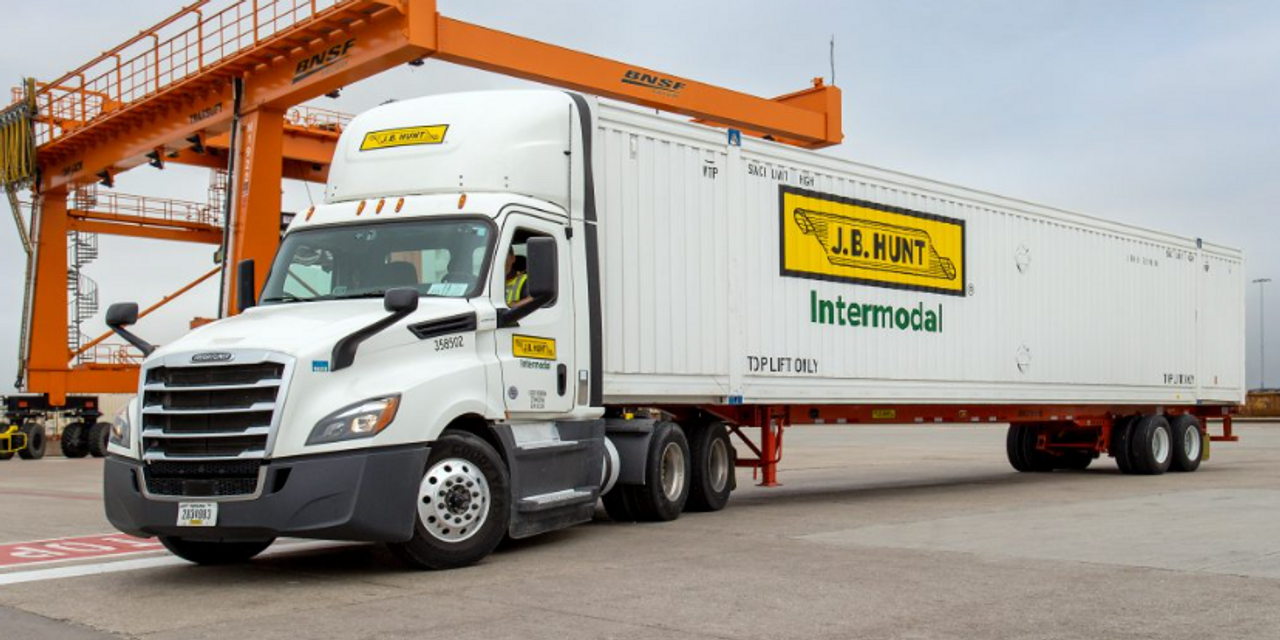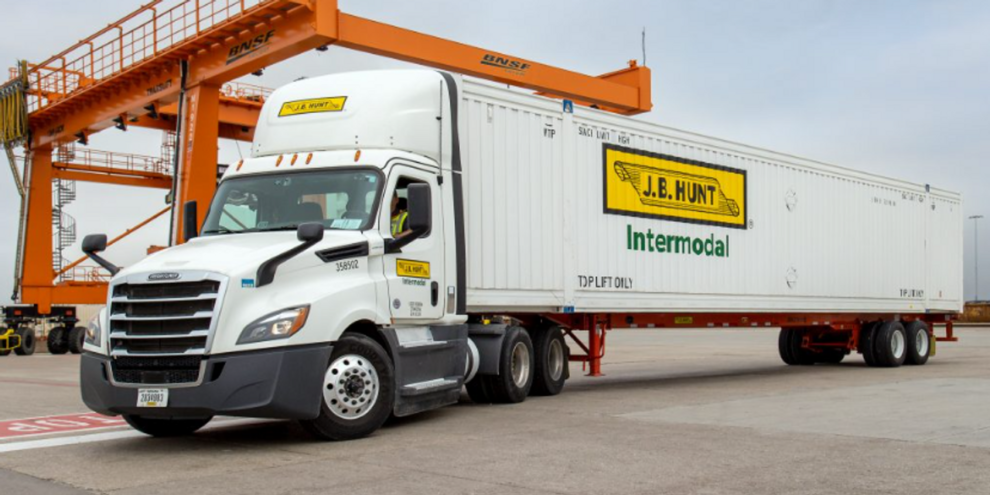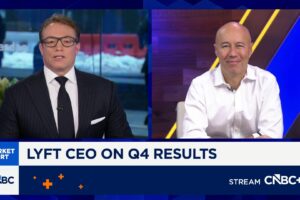
“‘Simply stated, we’re in a freight recession.’”
Trucking and transportation company J.B. Hunt Transport Services Inc. reported late Monday first-quarter profit and revenue that fell below expectations, as volumes and revenue per truckload declined amid a “freight recession.”
“To start, we’re in a challenging freight environment where there is deflationary price pressure for an industry that continues to face inflationary cost pressures,” President Shelley Simpson said in the post-earnings conference call with analysts, according to an AlphaSense transcript.
Simpson said, however, that based on an evaluation of how carriers can perform in the current environment, it would be “very difficult” for spot pricing to go significantly lower.
“I’m not suggesting we’ve completely found bottom, but we have seen a more leveling out,” Simpson said.
J.B. Hunt’s JBHT, -0.09% stock slipped 0.2% in afternoon trading Tuesday, and has swung between a loss of as much as 1.5% to a gain of 1.9% in intraday trading.
Net income for the quarter to March 31 was $197.8 million, or $1.89 a share, down from $243.3 million, or $2.29 a share, in the same period a year ago. That missed the average analyst estimate compiled by FactSet for earnings per share of $2.01.
Revenue declined 7.4% to $3.23 billion, below the FactSet consensus of $3.42 billion, as revenue per load fell 17%.
“These declines were primarily driven by lower freight volumes, moderating pricing trends, and inflationary cost pressures, particularly in the areas of salaries and wages, insurance and claims, and parts and maintenance-related expenses,” said Chief Financial Officer John Kuhlow.
Intermodal revenue fell 5%, integrated capacity solutions revenue sank 42%, final-mile services revenue slipped 4% and truckload revenue was down 10%, while dedicated contract services revenue increased 13%.
Intermodal President Darren Field said that while demand for intermodal services was “tempered” given lower imports and elevated inventory across the supply chain, he remained optimistic about the future.
“There is going to come a day when imports improve from where they are,” Field said. “When will that be? I don’t know the answer to that, but it will improve, and we stand to gain tremendously when that happens.”
Ten of the 27 analysts surveyed lowered their stock-price targets after the results, while one analyst lifted their target, according to FactSet, as the average target fell to $189.64 from $193.22 as of the end of March.
Evercore ISI analyst Jonathan Chappell lowered his stock-price target to $191 from $200 but kept his rating at outperform.
“Although there were widespread expectations of EPS misses and potential lower guidance ranges throughout the transport earnings season, [J.B. Hunt’s] early reporting date and vast multi-modal service offerings confirms tough market conditions across the board,” Chappell wrote in a note to clients.
He said the good news is that the company is still investing through the bottom of the cycle, winning market share and retaining 15% to 20% of intermodal capacity for when economic and industry headwinds “inevitably” shift to tailwinds.
Meanwhile, JPMorgan’s Brian Ossenbeck kept his rating at neutral but nudged up his stock-price target to $200 from $199, saying that the company actually performed “much better than we expected” as fading congestion fees that brought down profit per container didn’t crush margins.
“We agree with management that it is only a question of when, not if the cycle turns again and the volume spigot opens up again,” Ossenbeck wrote.
J.B. Hunt’s stock has edged up 1.1% year to date, while the Dow Jones Transportation Average DJT, -0.32% has advanced 6.6% and the Dow Jones Industrial Average DJIA, +0.05% has tacked on 2.6%.












